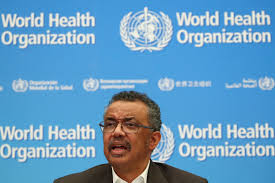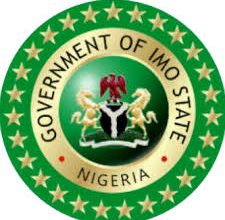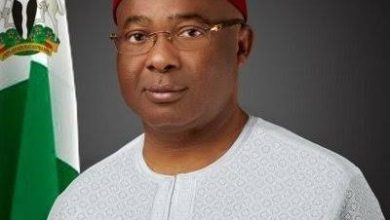World Health Day: The urgency to tackle inequities

By Adeze Ojukwu
The world can no longer ignore the glaring health inequities across nations.
Millions of people resort to self-medication and quacks for their medical needs, resulting in preventable emergencies and deaths.
Unlike the rich, poor people in Nigeria and other countries, virtually, lack access to affordable and quality medical services.
Therefore ‘building a fairer, healthier world,’ was brilliantly chosen, as the theme of this year’s World Health Day(WHD).
This year’s campaign highlights the principle that, ‘the enjoyment of the highest attainable standard of health is one of the fundamental rights of every human being without distinction of race, religion, political belief, economic or social condition.’
Coronavirus has, clearly exposed the urgency to urgency to tackle inequities across nations.
Hence World Health Organization(WHO) has unveiled a year-long plan to propagate this crusade.
It has therefore called on world leaders and heads of governments to prioritize the health of citizens, by institutionalizing policies and programmes, to ensure that everyone has access to quality and affordable medical care, irrespective of class, creed or race.
Sadly, it is really doubtful if the Nigeria’s leadership will heed this call, considering its poor record in socio-economic development of the country.
Over the last few years, Nigeria has remained the hotbed of poverty, with most citizens subsisting daily on less than one dollar..
Unsurprisingly, the distressed nation parades one of the worst mortality and morbidity rates globally, due to endemic corruption and bad governance.
Today, many citizens are not only plagued by disease and deprivation, but by acute food scarcity, inflation and insecurity.
To these disadvantaged populations, this universal anniversary is largely insignificant, arising from their dehumanizing circumstances, poor medical services and dilapidated hospitals.
The cumulative effect is the huge number of deaths recorded daily in many health institutions, across the country.
Federal government seems unperturbed about these human losses and eventualities.
The ineptitude of the administration, towards the welfare of doctors and medical workers, as well as the failure to fund and upgrade hospitals is apparent.
Monies meant for such pressing matters are often siphoned allegedly by state officials and their cronies.
Instead of revamping the dilapidated health systems, they allegedly spend public funds on foreign hospitals and luxuries, that the country’s weak economy can bear.
The recent trip by President Muhammadu Buhari to London for ‘a routine check up,’ has continued to generate widespread criticisms from opponents.
Indeed the financial implications of such unending foreign treatments by him and other executives is disconcerting.
Is it not a shame that this administration can not establish an ultra modern hospital to cater for the president and his elite class?
What then is the fate of the common man?
Despite these catastrophes in Nigeria’s health sector, this year’s WHD provides another opportunity for government to address the decline in the nation’s medical structure.
The date is marked annually on April 7, to highlight milestones and challenges facing health delivery universally.
Several organizations and agencies, marked the occasion with a week-long activities particularly conferences for health workers, media briefings and informational displays for adults and young people as well as online posts.
In Lagos, Abuja, Enugu and other cities, some hospitals and Non Governmental Organizations (NGOs), offered free public medical tests and counselling sessions.
In verity, a lot of people still require medical help, while others remain vulnerable to common ailments and unnecessary deaths.
The apex health agency has expressed serious concerns over these anomalies and continues to urge relevant authorities to address the menace.
‘Clearly our world is an unequal one,’ WHO said in a statement.
‘COVID-19 has hit all countries hard, but its impact has been harshest on those communities which were already vulnerable, who are more exposed to the disease, less likely to have access to quality health care services and more likely to experience adverse consequences as a result of measures implemented to contain the pandemic.’
‘As COVID-19 has highlighted, some people are able to live healthier lives and have better access to health services than others – entirely due to the conditions in which they are born, grow, live, work and age.’
‘All over the world, some groups struggle to make ends meet with little daily income, have poorer housing conditions and education, fewer employment opportunities, experience greater gender inequality, and have little or no access to safe environments, clean water and air, food security and health services.’
‘This leads to unnecessary suffering, avoidable illness, and premature death. And it harms our societies and economies.’
‘This is not only unfair: It is preventable. That’s why we are calling on leaders to ensure that everyone has living and working conditions that are conducive to good health.’
‘At the same time we urge leaders to monitor health inequities, and to ensure that all people are able to access quality health services when and where they need them.’
‘It also emphasized the need ‘to adopt a whole-of-government approach to tackling the root causes of inequities and increase investment in primary health care.’
‘At the first World Health Assembly(WHA) in 1948, delegates called for WHD to mark the anniversary of the founding of WHO. This anniversary, has been held on April 7 every year since 1950. The day is, generally, used to draw attention to particular priorities in global health.’
.Ojukwu is a Fellow of Hubert H Humphrey Fellowship journalist and advocate for improved socio-economic services for all citizens, as articulated in the Sustainable Development Goals(SDGS).
Please kindly send feedback to [email protected]





